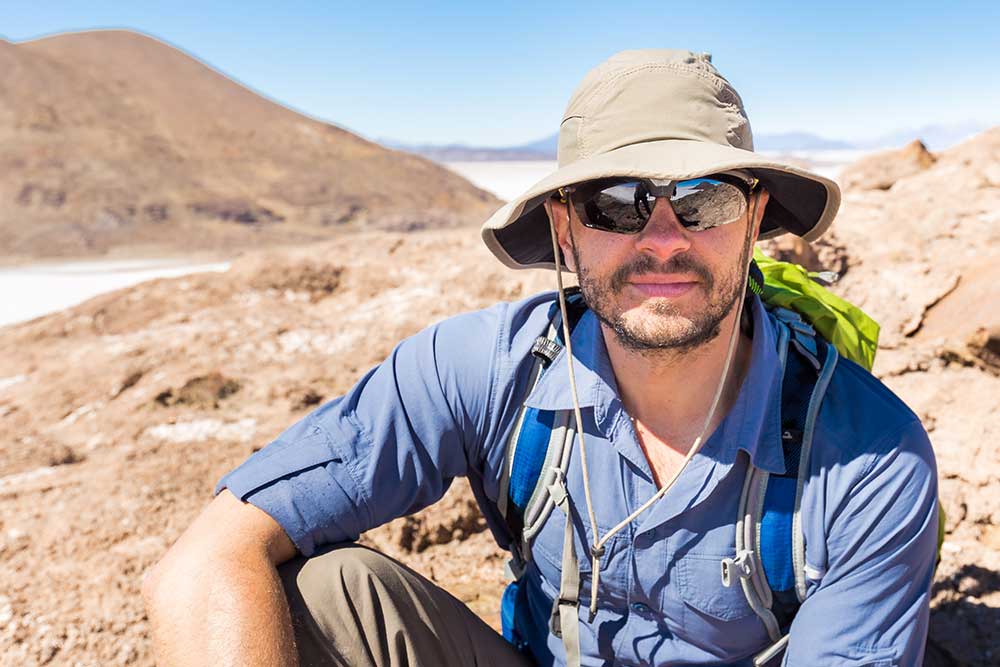All Categories
Featured
Table of Contents
Geophysicist in Parkwood Australia 2021

(PREM)., and the borders between layers of the mantle are consistent with stage shifts.

This makes plate tectonics possible. Schematic of Earth's magnetosphere. The solar wind circulations from delegated right. If a planet's electromagnetic field is strong enough, its interaction with the solar wind forms a magnetosphere. Early area probes mapped out the gross dimensions of the Earth's magnetic field, which extends about 10 Earth radii towards the Sun.
Inside the magnetosphere, there are relatively thick areas of solar wind particles called the Van Allen radiation belts. Geophysical measurements are typically at a specific time and place.
Geophysical Survey - Plaza Of The Columns Complex in Manning Western Australia 2020
, combines huge coordinates and the regional gravity vector to get geodetic collaborates. This approach only provides the position in 2 coordinates and is more hard to use than GPS.
Relative positions of 2 or more points can be identified utilizing very-long-baseline interferometry. Gravity measurements entered into geodesy since they were needed to related measurements at the surface area of the Earth to the recommendation coordinate system. Gravity measurements on land can be used gravimeters released either on the surface or in helicopter flyovers.
Water level can also be measured by satellites utilizing radar altimetry, contributing to a more precise geoid. In 2002, NASA released the Gravity Recovery and Climate Experiment (GRACE), wherein 2 twin satellites map variations in Earth's gravity field by making measurements of the distance in between the 2 satellites using GPS and a microwave varying system. Satellites in space have made it possible to gather information from not just the noticeable light area, however in other locations of the electromagnetic spectrum. The worlds can be characterized by their force fields: gravity and their electromagnetic fields, which are studied through geophysics and area physics. Determining the modifications in acceleration experienced by spacecraft as they orbit has actually enabled great details of the gravity fields of the planets to be mapped.
Geoscientists : Occupational Outlook Handbook in Carramar Western Australia 2023

Since geophysics is worried with the shape of the Earth, and by extension the mapping of features around and in the planet, geophysical measurements consist of high accuracy GPS measurements. These measurements are processed to increase their precision through differential GPS processing. Once the geophysical measurements have actually been processed and inverted, the analyzed outcomes are plotted utilizing GIS.
Lots of geophysics business have actually created in-house geophysics programs that pre-date Arc, GIS and Geo, Soft in order to meet the visualization requirements of a geophysical dataset. Expedition geophysics is applied geophysics that typically uses remote picking up platforms such as; satellites, airplane, ships, boats, rovers, drones, borehole picking up devices, and seismic receivers.
For circumstances, aeromagnetic information (aircraft gathered magnetic information) gathered utilizing standard fixed-wing airplane platforms should be corrected for electro-magnetic eddy currents that are produced as the airplane moves through Earth's magnetic field. There are likewise corrections associated with modifications in determined potential field intensity as the Earth turns, as the Earth orbits the Sun, and as the moon orbits the Earth.
Geophysical Survey Services in Gosnells Western Australia 2022
Signal processing includes the correction of time-series data for undesirable noise or errors introduced by the measurement platform, such as aircraft vibrations in gravity data. It likewise includes the decrease of sources of noise, such as diurnal corrections in magnetic data., meteorology, and physics.
The magnetic compass existed in China back as far as the 4th century BC. It was utilized as much for feng shui as for navigation on land. It was not until good steel needles might be forged that compasses were used for navigation at sea; prior to that, they might not retain their magnetism enough time to be helpful.
By looking at which of eight toads had the ball, one could determine the instructions of the earthquake. It was 1571 years prior to the very first style for a seismoscope was released in Europe, by Jean de la Hautefeuille. It was never developed. One of the publications that marked the beginning of modern science was William Gilbert's (1600 ), a report of a series of careful experiments in magnetism.
Geophysics in Neerabup Western Australia 2023
In 1687 Isaac Newton released his, which not only laid the structures for classical mechanics and gravitation however likewise described a variety of geophysical phenomena such as the tides and the precession of the equinox. The first seismometer, an instrument efficient in keeping a constant record of seismic activity, was developed by James Forbes in 1844. Dietmar; Sdrolias, Maria; Gaina, Carmen; Roest, Walter R. (April 2008). "Age, spreading rates, and spreading out asymmetry of the world's ocean crust". Geochemistry, Geophysics, Geosystems. 9 (4 ): Q04006. Bibcode:2008 GGG ... 9. 4006M. doi:10. 1029/2007GC001743. S2CID 15960331. "Earth's Inconstant Electromagnetic field". science@nasa. National Aeronautics and Space Administration. 29 December 2003. Obtained 13 November 2018.
Runcorn, S.K, (editor-in-chief), 1967, International dictionary of geophysics:. Pergamon, Oxford, 2 volumes, 1,728 pp., 730 fig Geophysics, 1970, Encyclopaedia Britannica, Vol. Intro to seismology (Second ed.).
Latest Posts
What Should I Do To Be A Geophysicist? in Subiaco WA 2022
Geophysicist - Jobs And Skills Wa in Midland Western Australia 2023
Career Guide: Geophysicist in Tapping Aus 2022